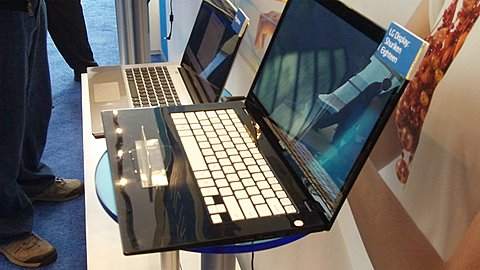The traditional PC market is stagnating because people are increasingly relying on mobile device to access the Internet.
“People just don’t need PCs the way they used to,” Rick Sherlund, an analyst at Nomura Holdings Inc told Bloomberg.

“They’ve got alternatives now for accessing the Internet. They’ve got smartphones and tablets, so there’s really no growth left in the traditional PC market.”
Indeed, according to IHS iSuppli, the PC market is set to contract by 1.2 percent to 348.7 million units this year.
Meanwhile, ABI Research is reporting that low ultrabook sales during the first half of 2012 effectively undermined Intel’s rather bullish “40% of notebook” claims made previously this year in an apparent fit of optimism.
“Higher than expected device prices, the wait for Windows 8, and a sluggish global economy have hindered sales for the new thin and light portable computers,” confirmed senior analyst Josh Flood.
“Nevertheless, after the launch of Windows 8 and the release of a host of new ultrabook models we will see shipments rise to twenty-one million by the end of 2012.”
Ultrabooks – a term coined by Intel for ultra-portable computers based on its processor architecture – are part of the broader portable computing market typically associated with the terms “laptop” or “notebook” PC. Targeted at mid-range prices, the most popular ultra-portable today is Apple’s MacBook Air.
“One of the biggest factors hindering ultrabook sales has been the awaited launch of Windows 8. However, with the launch of Windows 8, we may see a double whammy effect,” said Flood.
“A number of consumers have held off from computer purchases so they could purchase an ultrabook with Windows 8 during the year. Furthermore, with the abundance of new ultrabook model releases, older systems’ prices will reduce and this will entice purchases from the low to mid-range price segment.”
As expected, North America is currently the largest market for ultrabooks with half the world’s shipments, with Western Europe and Asia-Pacific following behind respectively.






